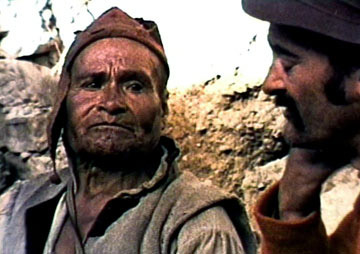| |
Terms / Concepts:
- diviner
- spirit possession is not generally considered a culture-bound syndrome
- spirit possession exists in many cultures, and in many belief systems, including Christianity
- spirit possession is an etic category
- compadre
- religious syncretism
- Disease is universal
- Illness is culturally specific
Notes:
- "What is real to the Aymera is often invisible."
- Note
- Alejandro Mamani's description of the different spirits tormenting him
- the reaction of the community and his family to his illness
- the kind of diagnosis made
- the various cures that are attempted
- note how all of these are related to Aymera beliefs
Cultures:
Sites:
- Vitocota, a small village near Lake Titicaca, Bolivian Andes
Individuals:
Bibliography / Resources:
- "How Time Flies" --
For the Aymara people living in the Andes, the past lies ahead and the future lies behind. Laura Spinney looks at how different languages reflect, and shape, our conception of time (Thursday February 24, 2005; The Guardian)
- transcript -- Honolulu Community College [this transcript does not contain the dialogue of the Aymara, which is very important to pay attention to in this video]
|



